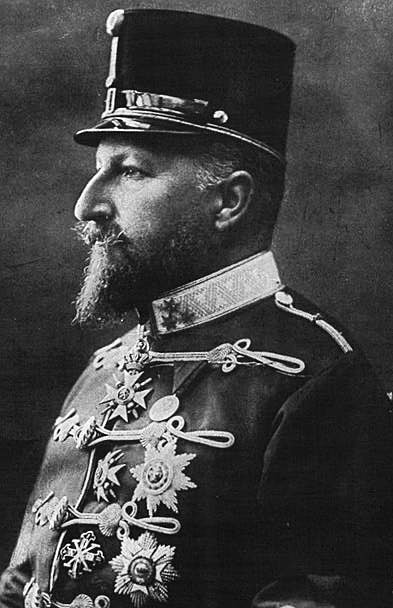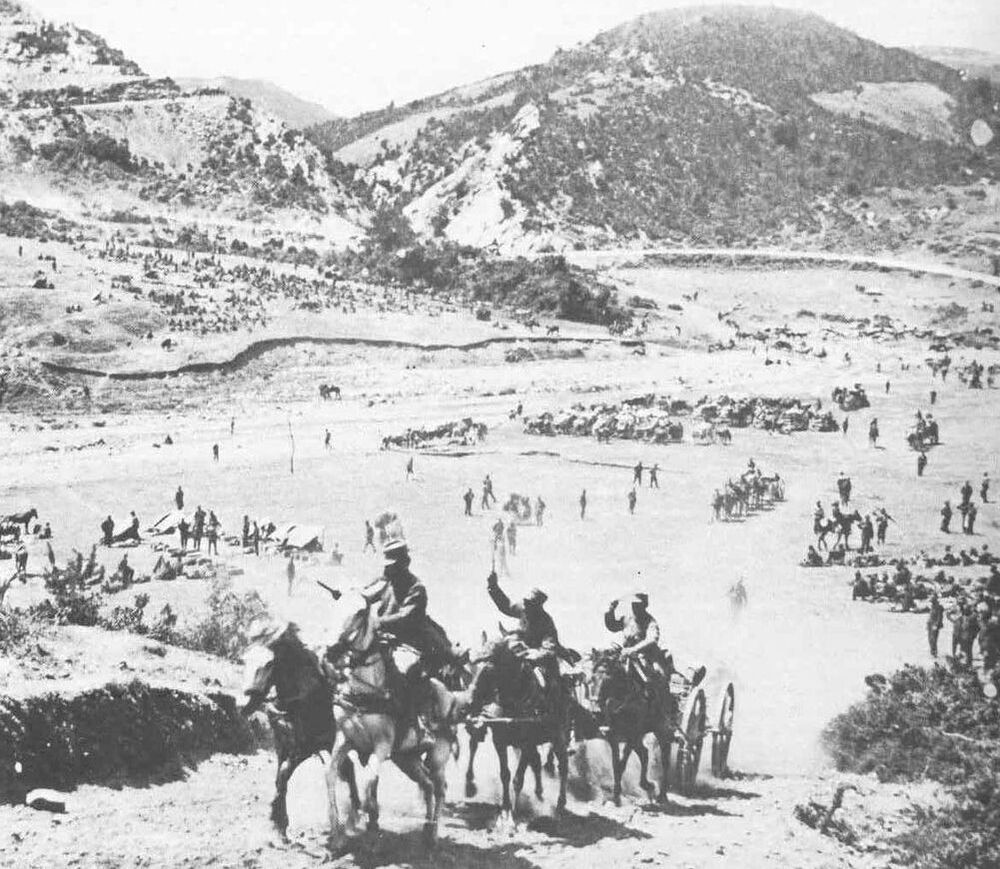SECOND BALKAN WAR
The Second Balkan War was a significant conflict that occurred in 1913 immediately following the events of the First Balkan War. In fact, the Second Balkan War was a direct result of the First Balkan War, as it saw the former allies of the First Balkan War turn on each other along with other new combatants. More specifically, the Second Balkan War saw Bulgaria face off against: Greece, Montenegro, Ottoman Empire, Romania and Serbia. Due to the timeframe in which it occurred, the Second Balkan War (along with the earlier First Balkan War) are considered to be important to World War I. In fact, historians consider the events of both Balkans Wars to be important causes of World War I, which began in 1914 following the assassination of Austrian Archduke Franz Ferdinand.
WHAT CAUSED THE SECOND BALKAN WAR?
|
As stated above, the First Balkan War and the tensions present in the Balkans led to the events of the Second Balkan War. First, the Balkans (along with the rest of Europe) experienced a growth of nationalism in the 19th century and early 20th century. This growth in nationalism caused nations within the Balkans seek to expand their territory and influence in the region. Ultimately, the growth of nationalism led to the outbreak of the First Balkan War, which was the most direct cause of the Second Balkan War.
The First Balkan War occurred from 1912 until 1913 and was fought between the Ottoman Empire and the member nations of the Balkan League, which included: Bulgaria, Greece, Montenegro and Serbia. These four nations formed an alliance and took one the Ottoman Empire and its control over southeastern Europe. At the time, the Ottoman Empire was in a state of decline and struggled to fight back. As a result, the First Balkan War finally ended on May 30th of 1913 with the signing of the Treaty of London. With this treaty, the Ottoman Empire gave up large sections of territory in the Balkans, which was taken over by the member nations of the Balkan League. However, soon after the end of the First Balkan War, Bulgaria expressed frustration with the lands that they received. This is what ultimately led to the start of the Second Balkan War.
|
MAJOR EVENTS OF THE SECOND BALKAN WAR
Ferdinand I of Bulgaria was upset following the First Balkan War, because he believed that Bulgaria had not gained the territories that it was owed. As such, Bulgaria was the country that began the Second Balkan War.
The Second Balkan War officially began on June 29th in 1913 following a period in which Bulgaria readied its armies. The main opponents that the Bulgarians faced in the conflict were Serbia and Greece, which were both former allies to Bulgaria in the First Balkan War. Both Serbia and Greece had signed a secret alliance before the outbreak of the Second Balkan War and were the main nations that Bulgaria argued with over territories in the Balkans. The Bulgarian armies attacked Serbian forces on June 29th. The two nations fought in bloody battles that included the Battle of Bregalnica and the Battle of Kalimanci. In both of these battles, the Bulgarians suffered heavy losses and were forced into a retreat. Bulgaria did much better against the Greek forces but did not obtain any meaning victory. For instance, in the Battle of Kresna Gorge, which took place in July of 1913, both sides suffered losses. As a result, the battle was a stalemate and neither Greece nor Bulgaria were able to defeat the other. At the same time, both Romania and the Ottoman Empire attacked Bulgaria. Romania had lingering tensions from the First Balkan War with Bulgaria and wanted to capture some more territories for themselves. As well, the Ottoman Empire used the Second Balkan War as an opportunity to recapture territories that they had just lost in the First Balkan War. The roles of both Romania and the Ottoman Empire were brief and did not carry the same intensity as the fighting carried out by both Serbia and Greece. Regardless, Bulgaria suffered heavy losses in the Second Balkan War and sought a way out when the opposing forces threatened to capture the capital city Sofia. The Second Balkan War ended on August 10th, 1913.
OUTCOMES OF THE SECOND BALKAN WAR
As stated above, the Second Balkan War did not last long. In fact, the total duration of the war was just over a month. It ended in August of 1913 when Bulgaria sought an end to the war, after suffering terrible losses. What resulted were two treaties - the Treaty of Bucharest and the Treaty of Constantinople. The Treaty of Bucharest was completed first and involved Bulgaria and its main Balkan opponents in the war, which included: Romania, Serbia, Montenegro and Greece. The Treaty of Bucharest was signed on August 10th in 1913 and modified the terms of the Treaty of London, which ended the First Balkan War. In general, Bulgaria was forced to give up territories to each of the Balkan nations. The Treaty of Constantinople was signed on September 29th, 1913 and was in regard to Bulgaria and the Ottoman Empire. It was similar to the Treaty of Bucharest, in that it forced Bulgaria to provide territories to the Ottoman Empire.
Besides the treaties mentioned above, historians consider the Second Balkan War to be significant for the role it played in the build up to World War I. In fact, both the First Balkan War and the Second Balkan War are considered to be significant causes of World War I, which began in 1914.
The event that sparked World War I was the assassination of the Austrian Archduke Franz Ferdinand on June 28th, 1914. Austria blamed Serbia for this action, since Ferdinand was murdered by Gavrilo Princip - a Bosnian nationalist and member of the Black Hand. The Black Hand was a secret organization aimed at promoting Serbian (and Slavic) nationalism, and assassinated Ferdinand in protest of Austria’s influence in the Balkans. As such, this displays that World War I was a direct result of the Bosnian Crisis of 1908 and the two Balkan Wars.
CITE THIS ARTICLEAUTHOR
|
|



